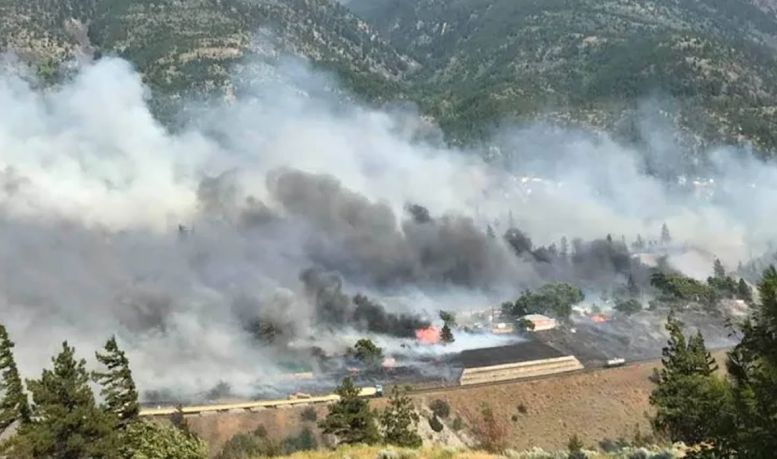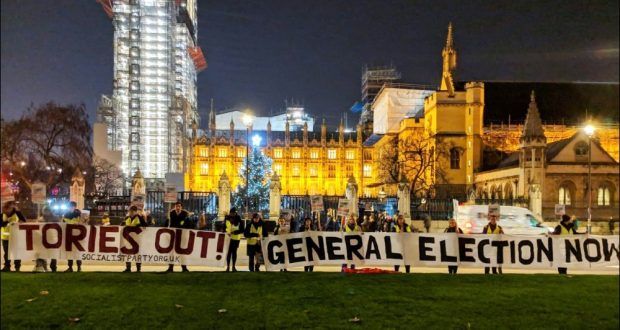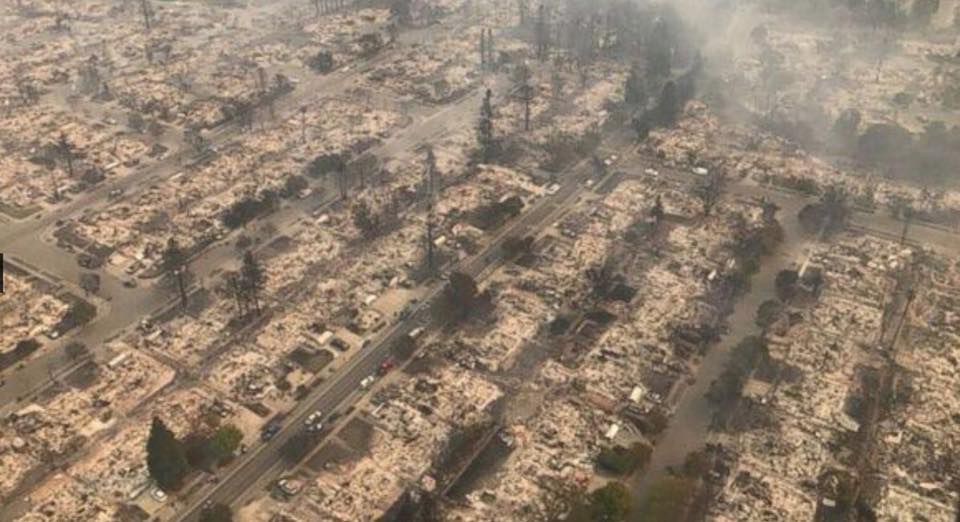It’s been two long years. On June 30, 2021, the lives of people in Lytton, BC were changed forever, when fire swept through their community, devastating the entire village: city hall, the police station, the fire hall, two museums and the entire seven blocks of the commercial district. Almost every house was destroyed. Less than 10 percent of the buildings were left standing. Two people tragically died. About 250 people lived in Lytton at the time and up to 2,000 First Nations residents live in nearby reserves. In the days preceding this wildfire, BC had been experiencing a heat dome. On June 30 in Lytton, temperatures reached nearly 50°C.
Two years later, the community has still not been given answers about the cause of the 2021 fire. There have been theories, such as the prevailing one about sparks from a passing freight train igniting nearby bone-dry vegetation. However, the Transportation Safety Board found no evidence that this was the case. Despite this, the Village of Lytton and the regional district have launched a lawsuit against CN Rail, CP Rail and Transport Canada.
While much of the debris from the fire has been cleaned up, rebuilding has not begun. Some residents have experienced post-traumatic stress after fleeing for their lives, losing their homes and all their possessions. Many residents did not have insurance and the money promised by the federal government to rebuild fire-resistant houses can only be accessed after the work has been done (and money spent). These are real barriers.
Lytton, located on the east side of the Fraser River and south of the Thompson River, in a dry, desert-like valley, has often been the “hot spot” in Canada. It has been inhabited for at least 10,000 years by the Nlaka’pamux (Lytton First Nation). During the Fraser Canyon Gold Rush in 1858-60, a war erupted between some Indigenous people and miners, and the Nlaka’pamux leaders and Chief negotiated a peace treaty.
Early this month, an evacuation order was issued for Lytton First Nation and the Village of Lytton, along with several other communities in BC. Evacuation orders are becoming an increasingly frequent phenomenon for communities who live near forests.
The National Wildland Fire Situation Report, as of June 28, 2023, reported 363 fires across Canada, of which 85 are uncontrolled. So far in 2023, there have been 3,020 fires (contrasted with a 10-year average of 2,400). The area burnt is well above the 10-year average: 7,974,865 hectares (ha), compared to the 10-year average of 499,474 ha. It is still only the start of July.
The extraordinary number and scale of these fires has meant that Canada is at the highest level of national preparedness and has mobilized resources from around the world, including from the US, Australia, New Zealand, South Africa, France, Spain, Portugal, Mexico, Chile and Costa Rica.
The fires have caused continual air quality warnings across Canada, with major cities reporting, over the past weeks, some of the worse air quality warnings anywhere on earth. While the air is anything but clear, what should be clear is that we are living through a climate catastrophe that is unprecedented in living memory. This catastrophe not only affects those in communities who are evacuated or in danger of evacuation, but all of us.
Capitalism seems immune to these signs. Profit trumps all else, including human health, the air we breathe and survival.
The tragedy of Lytton is a tragedy for all of us. Lytton could sadly be one of the examples of how climate change and capitalism failed to respond to the most basic of human needs: safety, security and homes. Or it could rise from the ashes and create a model community, one that is built to resist the ravages of fire and heat and to provide an example of community-building and resilience. The answer is as stark as that posed for the future of humans: a capitalist hell or socialism that prioritizes human need over greed?



